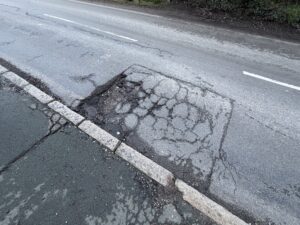A new survey is suggesting nearly three-quarters of drivers would like to see the standard 70mph speed limit on motorways reduced in wet weather.
The RAC spoke to 2,100 drivers and found 72% want a reduction to improve road safety and encourage better driving habits.
France is currently the only country in Europe to have speed limits that are reduced in the rain, with the 130km/h (80mph) limit reduced to 110km/h (68mph), a reduction of around 12mph.
Of 2,100 drivers surveyed, a third (33%) said the limit should be reduced to 60mph in the wet, while 7% think it should be cut to 65mph. 17% of those surveyed would like an even lower limit of 55mph or even 50mph, while 14% would like to see the limit cut but aren’t sure by how much.
Of the reasons given by drivers who advocate lower motorway speed limits in the wet, 78% said they felt lower limits would encourage some drivers to slow down, while 72% believed it might save lives, so is worth trying. Two-thirds (65%) said slower speeds might improve visibility with less spray from moving vehicles, and half (53%) felt it would reduce overall vehicle speeds, even if some people ignored the lower limit.
Among the fifth of drivers who are against the idea of a lower motorway speed limit in bad weather, a majority said it was because most drivers already adjust their speed to the conditions or because there would be difficulty in defining when the new limit should apply, such as whether it would apply whenever the road surface was damp, or only while rain was actually falling.
“Statistically, the UK has some of the safest motorways in Europe but it’s also the case that there hasn’t been a reduction in casualties of all severities on these roads since 2012, so perhaps there’s an argument for looking at different measures to help bring the number of casualties down,” commented RAC data insight spokesman Rod Dennis. “Overall, our research suggests drivers are broadly supportive of lower motorway speed limits in wet conditions, as is already the case in France. And while most drivers already adjust their speed when the weather turns unpleasant, figures show that ‘driving too fast for the conditions’ and ‘slippery roads’ are still among the top 10 reasons for motorway collisions and contribute to significant numbers of serious injuries and even deaths every year.
“It’s worth remembering that an increasing number of stretches of motorway no longer have permanent 70mph limits, as all smart motorways feature speed limits which are automatically adjusted to ease congestion based on traffic flow. With digital signs now so commonplace, arguably the means exist to conduct a trial to see whether there are safety benefits of setting different speed limits in inclement weather.”
(Picture – Getty Images courtesy of RAC)
























